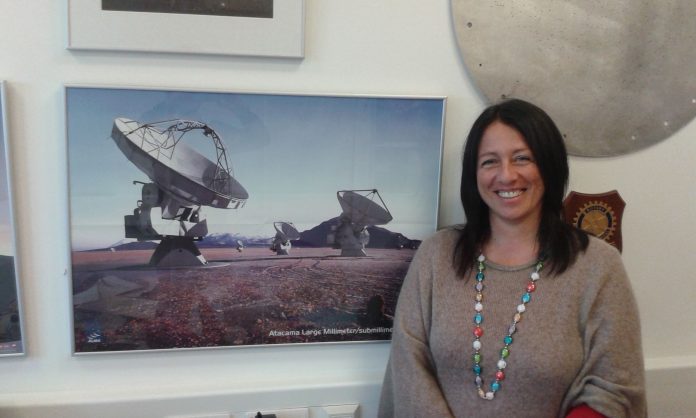An astrophysicist studies the universe and its components, stars, galaxies, interstellar dust, using the laws of physics and chemistry to explain what telescopes observe and investigate the very nature of the cosmos, its origin and fate.
If I go back to my childhood, which I spent in northern Italy, there were many subjects which were appealing to me, such as literacy, history, music, physics. I do remember being fascinated by the darkness of the night sky, but more from a ‘mystery of existence’ side than from a mathematical side.
The breaking point which took me into studying astrophysics was the movie ‘Star Wars’. I was dreaming that the life of a scientist would be of that kind. In my family, there was also a history of aviation pilots and I was fascinated by travel and adventures.
Studying astrophysics
After completing school education, I moved to the University of Bologna, the oldest university in the world, to study astronomy and astrophysics, which is essentially physics with several modules specific for astrophysics and cosmology.
Related article: How I broke down barriers to study physics at university
During my master thesis, I developed a model for the interpretation of the energy emission from distant galaxies, which became the flagship of my research.
I obtained a PhD in astrophysics in the same university and was soon after offered a research position at the Ludwig-Maximillians University in Munich (Germany).
It was 1998 when I left my home country thinking I would have come back in a few years.
Fellowship at Oxford
During my time in Munich, my research and research connections flourished. I started to become known in the worldwide scientific community and to be invited to conferences as a key-note speaker.
In 2001 I was offered a new position as a research fellow at the prestigious Max-Planck-Institute for extraterrestrial physics. In 2004 I was contacted by the director of the physics department of Oxford University. He knew of my work and suggested me to apply for a Marie-Curie fellowship to relocate to Oxford. At the time I was expecting my first daughter, Giulia. I accepted this new challenge and won the prestigious fellowship.
I moved to Oxford in January 2005 with a three-month-old baby and my husband, who is also an astrophysicist.

Combining career and family
In 2007 I won a very prestigious research grant of the European Council of about £1.3M and obtained a permanent lecturer position in Oxford. At the same time, I was offered several other positions in the UK, including at the University of Portsmouth. I decided for the latter as at the time I was expecting my second daughter Laura and my husband was also offered a position at the University of Portsmouth. We wanted to live together, buy a house and not be separated with two little children.
My decision was motivated by the wish to combine career and family, as I think they are both crucial aspects of a healthy life. In Portsmouth, I was promoted to reader in 2009 and to Professor in 2014. In 2018 I was awarded the Eddington medal for astronomy by the Royal Astronomical Society.
I love my work because it is very diverse, passing from blue-sky research to teaching to students, disseminating to the public via outreach events, collaborating with colleagues all around the world, contributing to the management of the University and to the management of science around the world. I do not know what being bored means!
Work hard
To anyone who would like to attempt a career as an academic, no matter the discipline, I would suggest to be perseverant and to work hard. Networking is important, but first and foremost it is working hard to build up a solid reputation. Creativity is an important component also in science, as it is needed to make the difference and emerge among colleagues. Being open-minded and curious helps to make discoveries.
To become an astrophysicist one needs a masters degree in physics followed by a PhD in astrophysics. The degree in physics is very general and well-reputed; if the academic career does not work it will still ensure a high-profile job in industry, finance or as science communication.
All in all, believe in yourself, accept challenges, dream big and be positive: it will work out for you!

